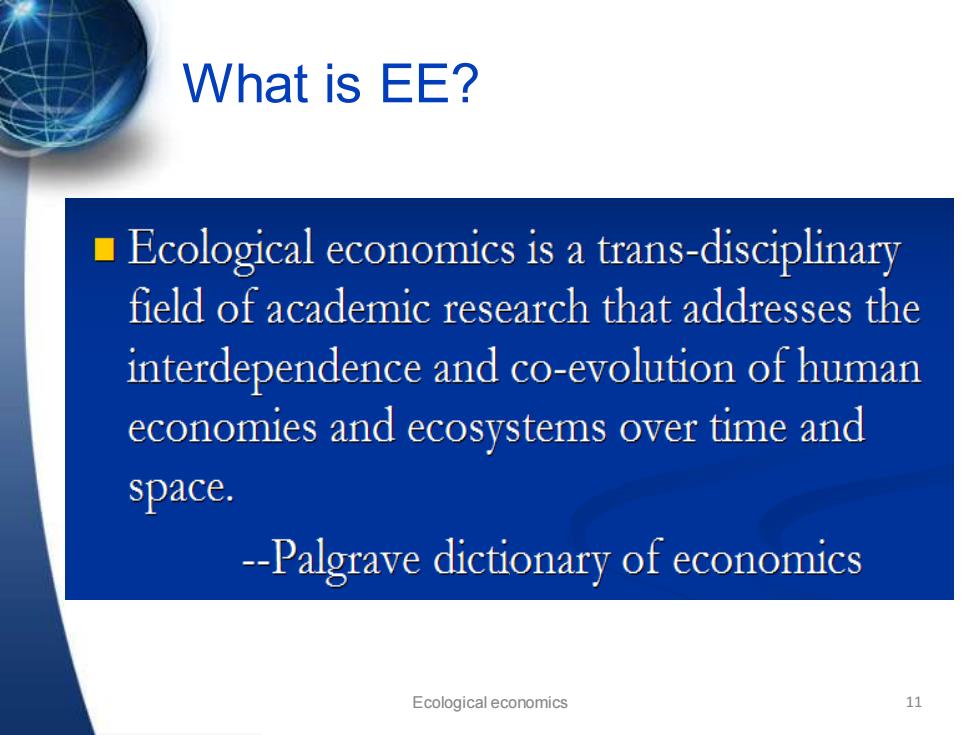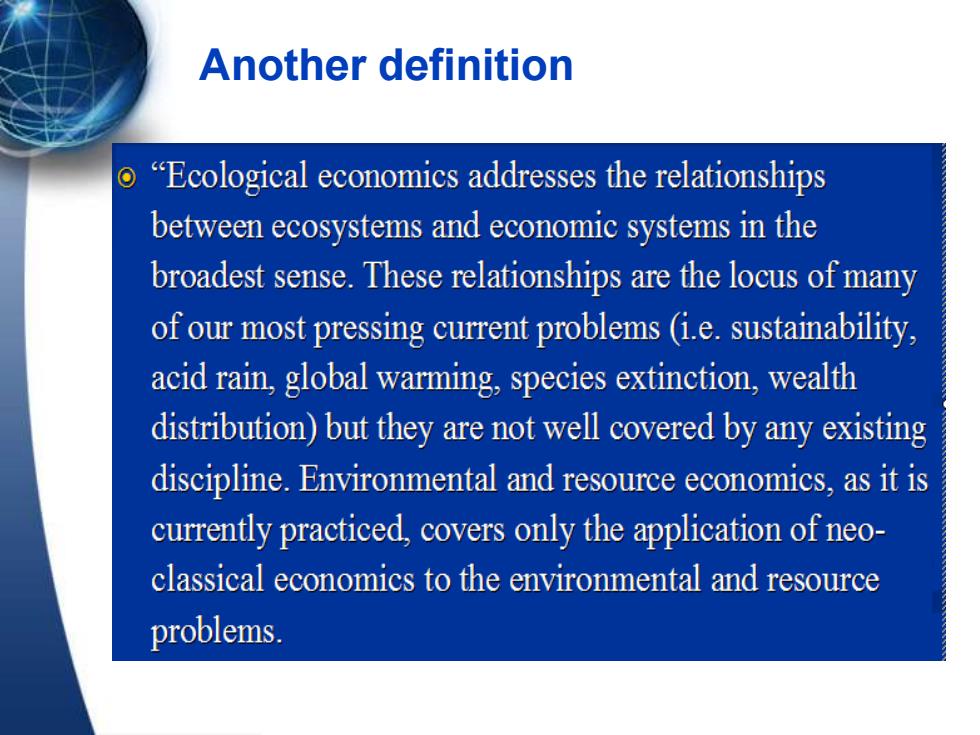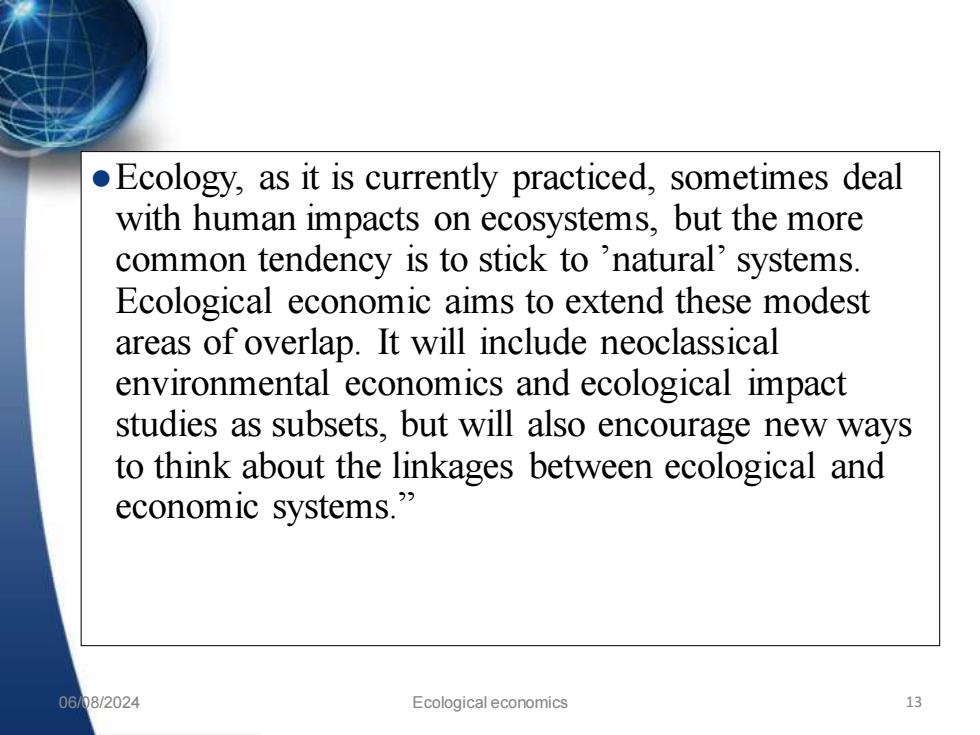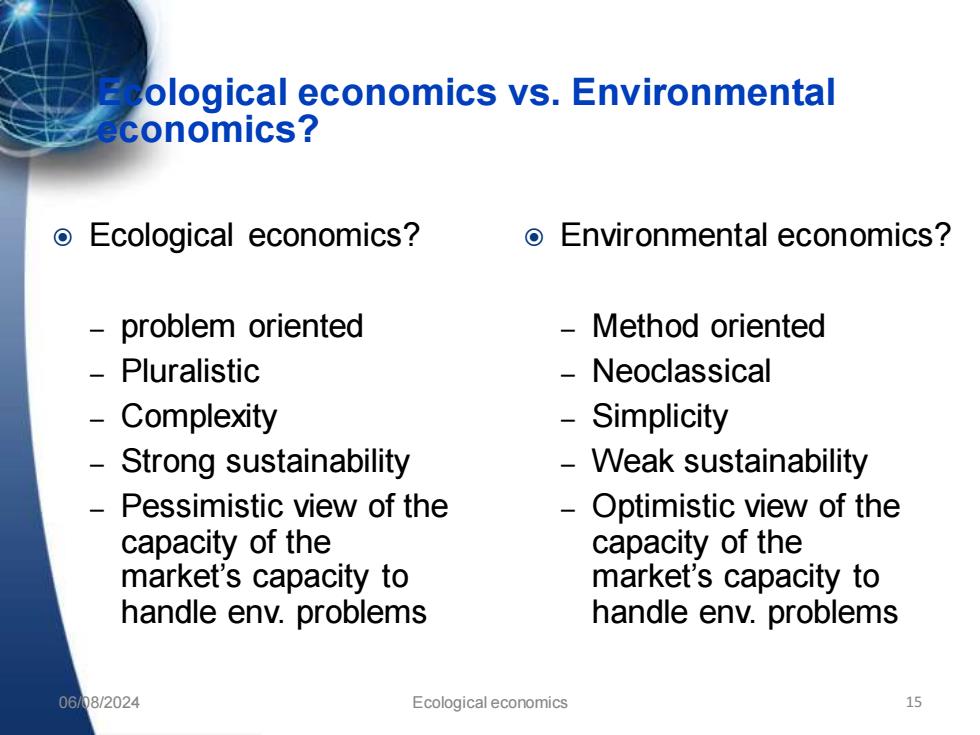
What is EE? Ecological economics is a trans-disciplinary field of academic research that addresses the interdependence and co-evolution of human economies and ecosystems over time and space. -Palgrave dictionary of economics Ecological economics 11
What is EE? Ecological economics 11

Another definition ⊙ "Ecological economics addresses the relationships between ecosystems and economic systems in the broadest sense.These relationships are the locus of many of our most pressing current problems(i.e.sustainability, acid rain,global warming,species extinction,wealth distribution)but they are not well covered by any existing discipline.Environmental and resource economics,as it is currently practiced,covers only the application of neo- classical economics to the environmental and resource problems
Another definition

Ecology,as it is currently practiced,sometimes deal with human impacts on ecosystems,but the more common tendency is to stick to 'natural'systems. Ecological economic aims to extend these modest areas of overlap.It will include neoclassical environmental economics and ecological impact studies as subsets,but will also encourage new ways to think about the linkages between ecological and economic systems.” 0608/2024 Ecological economics 13
⚫Ecology, as it is currently practiced, sometimes deal with human impacts on ecosystems, but the more common tendency is to stick to ’natural’ systems. Ecological economic aims to extend these modest areas of overlap. It will include neoclassical environmental economics and ecological impact studies as subsets, but will also encourage new ways to think about the linkages between ecological and economic systems.” 06/08/2024 Ecological economics 13

Ecological economics exists because a hundred years of disciplinary specialization in scientific inquiry has left us unable to understand or to manage the interactions between the human and environmental components of our world.While none would dispute the insights that disciplinary specialization has brought,many now recognize that it has also turned out to be our Achilles heel.In an interconnected evolving world,reductionist science has pushed out the envelope of knowledge in many different directions,but it has left us bereft of ideas as to how to formulate and solve problems that stem from the interactions between humans and the natural world.How is human behaviour connected to changes in hydrological, nutrient or carbon cycles?What are the feedbacks between the social and natural systems,and how do these influence the services we get from ecosystems? Ecological economics as a field attempts to answer questions such as these

ological economics vs.Environmental economics? Ecological economics? Environmental economics? problem oriented Method oriented -Pluralistic Neoclassical Complexity -Simplicity Strong sustainability Weak sustainability Pessimistic view of the Optimistic view of the capacity of the capacity of the market's capacity to market's capacity to handle env.problems handle env.problems 06/08/2024 Ecological economics 15
Ecological economics vs. Environmental economics? Ecological economics? – problem oriented – Pluralistic – Complexity – Strong sustainability – Pessimistic view of the capacity of the market’s capacity to handle env. problems Environmental economics? – Method oriented – Neoclassical – Simplicity – Weak sustainability – Optimistic view of the capacity of the market’s capacity to handle env. problems 06/08/2024 Ecological economics 15